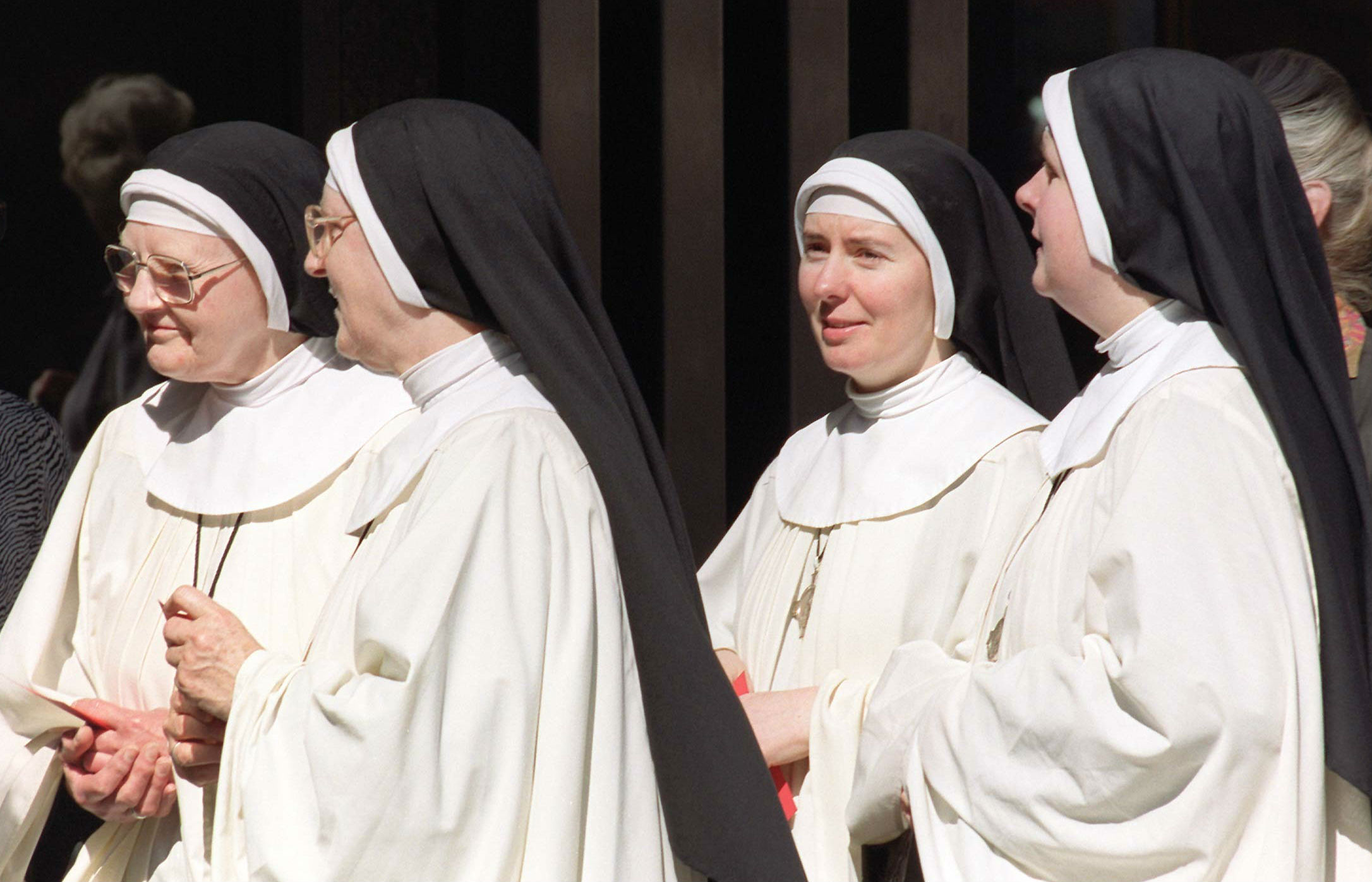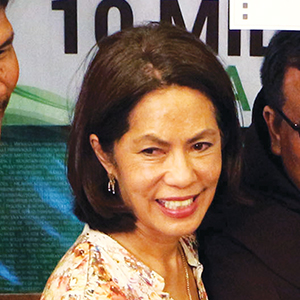Duterte regrets ...
The Philippines Catholic Church has condemned a congressional commission decision to block the appointment of the country’s new environmental chief. Fr Edwin Gariguez, head of the social action secretariat of the Catholic bishops’ conference, said those who voted against the appointment of Gina Lopez (above) as head of the Department of Environment and Natural Resources “are not serving the people but the interests of corporations and their personal agenda”.
During her short stint in government, Ms Lopez, a staunch anti-mining activist who was named environment minister by President Rodrigo Duterte last year, ordered the closure of 28 mines for damaging coastal waters and farmlands. On 4 May, Mr Duterte said the non-confirmation of Ms Lopez was beyond his control and “a pity”.
A Christian man has been sentenced to life imprisonment under Pakistan’s blasphemy law, despite the absence of evidence to support the charge against him. Zafar Bhatti was accused of insulting Islam in a text message he sent in 2012. He denied the charges and told the court that the mobile phone in question was not charged to his account. He has been held in prison since that time. Blasphemy is a highly sensitive issue in the country: critics say the laws are often used to target minorities. In another incident, a child was killed and five others injured as a mob attacked a police station in an attempted lynching of a man accused of blasphemy in Hub, Balochistan province, on 4 May. Prakash Kumar, a 34-year-old Hindu, was arrested after being accused of sharing blasphemous content on the WhatsApp messaging service. Hundreds of protesters gathered outside the police station, demanding that he be handed over to them for a public lynching and several were taken into custody.
Russia’s Orthodox Church has praised a Supreme Court ruling outlawing the Jehovah’s Witnesses, whose properties and possessions have already been seized in several cities. “This is a totalitarian, harmful sect – I know this well, since I’ve had an opportunity to talk to former adepts more than once,” said Metropolitan Hilarion Alfeyev (above), head of the Church’s External Church Relations department. “Their doctrine contains many false teachings, and they do not believe in Jesus Christ as God and Saviour. Nor do they recognise the doctrine of the Trinity, so they cannot be called Christians.” He spoke as police seized places of worship belonging to the Jehovah’s Witnesses across Russia, following the rejection of an appeal against the 20 April Supreme Court ban. Human rights groups, the US, UK and German governments and Russia’s small Catholic Church have condemned the banning of the Witnesses. The Church’s spokesman, Mgr Igor Kovalevsky, told The Tablet that Catholics could now face “if not persecution, then at least new acts of discrimination”.
‘A bewildered country’
The 55th General Assembly of the Brazilian Bishops’ Conference (CNBB) concluded in Aparecida on 5 May with the release of an official note discussing the country’s political situation. The note said it was urgent to “resume the path of ethics to rebuild the social fabric in Brazil” and address such pressing issues as corruption, excessive use of police force and environmental crimes. The Archbishop of Brasilia and President of the CNBB, Cardinal Sergio da Rocha, told the press that a key topic at the Assembly was the project “Think of Brazil”. The official note stated that Brazil was “a bewildered country, with public and private actors who ignore ethics and are without moral principles”.
A Catholic bishop in Indonesia’s Christian-majority Papua province has criticised a plan by the local authorities in Jayapura to build “the world’s tallest statue of Jesus”. Franciscan Bishop Leo Laba Ladjar of Jayapura called the project “unnecessary”, adding that “the money should be allocated for more urgent things, such as education, health and alleviating poverty”. The statue would stand 73 metres high, dwarfing the Christ the Redeemer statue in Rio de Janeiro, Brazil, which is 38 metres high.
Australia should have a national policy directed at ending human trafficking by 2030, a Catholic bishop has told a parliamentary inquiry in Sydney. Bishop Terry Brady, Chairman of the Bishops’ Commission for Pastoral Life, told the Parliamentary Joint Committee on Law Enforcement that the decision in March of the Archdiocese of Sydney, where he is an auxiliary bishop, to make its supply chains “slavery-proof”, was significant because the Catholic Church was one of the largest purchasing groups in Australia after government bodies.
He urged the passage through parliament of a Modern Slavery Act that would require all large organisations operating in or doing business in Australia to provide an annual public statement on the steps they were taking to eradicate slavery from their organisation and supply chains.
Priests take initiative
Pope Francis had opened up scope for reform on such issues as the priestly celibacy rule, communion for remarried divorcees and the possible ordination of women deacons and had asked bishops’ conferences worldwide to send him suggestions for reform, Fr Helmut Schüller (above), the initiator of the Austrian Priests’ Initiative, recalled at a press conference in Vienna on 4 May. In his apostolic exhortation Amoris Laetitia, for instance, Francis had allowed some leeway for remarried divorcees to receive the Eucharist in individual cases, Fr Schüller explained. The Maltese, Argentinian and German bishops’ conferences had published guidelines for priests on the issue but many other conferences, including the Austrian bishops’ conference, had not yet done so.
“We want to wake bishops up and encourage them to make use of the leeway for reform the Pope has given them”, Fr Schüller emphasised.
11 May 2017, The Tablet
News Briefing: global
 Loading ...
Loading ...
Get Instant Access
Subscribe to The Tablet for just £7.99
Subscribe today to take advantage of our introductory offers and enjoy 30 days' access for just £7.99



